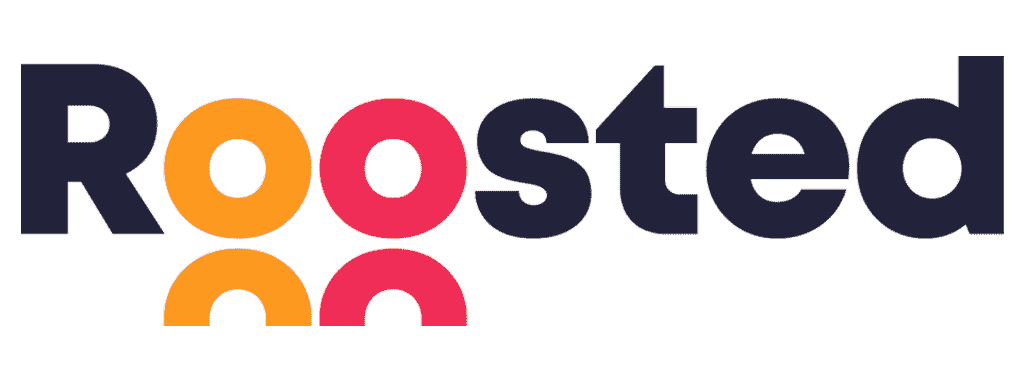Diversity in hiring benefits employees and your business.
Diverse hiring practices are being discussed more and more across all industries in America. Here's why diversity and inclusivity matter for your event business.

Diversity and Inclusivity in Hiring:
How to Improve Diversity on your Team and Why it Matters
Diversity in hiring is becoming an increasingly discussed business initiative across all industries and sectors in America. Just last March, 350 hospitality industry leaders met to address this topic at the 2019 Diversity & Inclusion Conference. While the subject has gained traction among business leaders and the majority of job seekers support increased diversity in the workplace, there is still a lot of confusion over what diverse hiring practices actually entail.
What are diverse hiring practices?
There is a misconception that the goal of diversity recruitment is to increase workplace diversity for the sake of diversity, regardless of a candidate's merit or qualifications. It’s important to clarify that diverse hiring is NOT a policy of hiring minorities just to hit a certain headcount of minority team members. Diverse hiring is also NOT about hiring at the expense of qualified non-minority team members.
Diverse hiring practices are meant to identify and remove potential biases in recruiting, screening, and shortlisting candidates. The goal is to remove the, oftentimes unconscious, biases in hiring that may lead to ignoring, turning-off, or accidentally discriminating against qualified, diverse candidates. The hiring decision still comes down to if the candidate is the most qualified and best fit for the role.
Why does diversity matter?
With so many companies talking about making diversity a priority, it’s important to remember that diversity in hiring is not just a feel-good initiative nor solely a tactic to ensure compliance with anti-discrimination laws. It’s also good business.
Study after study has shown that diversity (both racial and gender) has a positive impact on performance, decision making, and finances. In fact, diverse teams make faster and better business decisions, are more creative problem solvers, and have better group performance than more homogenous teams.
Diverse workplaces are also linked to an increase in a company’s bottom line. According to a 2015 study from Bersin by Deloitte, inclusive companies had a 2.3x higher cash flow per employee over a three-year period than their less diverse counterparts. Meanwhile, a 2018 study from McKinsey shows that businesses “in the top quartile for racial and ethnic diversity are 35% more likely to have financial returns above their respective national industry medians”. Simply put, diversity and inclusion save money and boost revenue.
How does diversity in hiring affect an event business or hospitality company?
Much of the public conversation around diversity in the workplace has focused on the tech industry and other traditionally homogenous business sectors. In contrast, the hospitality industry as a whole has a notably diverse workforce. More than 80 percent of the industry’s workforce is female and over 43% are racial minorities. It’s likely that your event crew, catering team, stage labor or festival employees are a diverse group. So why worry about diversity hiring measures at a company that already appears so inclusive?
It’s not as simple as having a set headcount of certain minority groups at your company. Remember, this isn’t about hitting arbitrary metrics, it’s about creating an inclusive environment in all areas of your business. The purpose is to allow people of many different backgrounds to thrive in their jobs which will ultimately benefit your company.
Let’s take a deeper look at diversity in the hospitality and event industry:
Although women comprise the majority of employees in hospitality, only 1 in 10 hospitality leaders are women. Similarly, while just under half of the industry’s employees are non-white, the majority of non-white employees are in entry-level positions - not positions of leadership. Statistically, your staff may be ethnically or racially diverse, but you’re doing your company a disservice if you don’t look beyond superficial tallies of diversity.
Inclusivity in hiring should go beyond the racial and gender diversity of entry-level or hourly shift staff. Consider how diverse management and senior leadership positions are within your business. Even companies with diverse contract workers, seasonal labor, and part-time employees can benefit from diverse hiring practices, especially as they pertain to promotions and their management team.
Lastly, keep in mind that diversity is more than just race and gender. A diverse team includes diversity in age, religious affiliation, educational background, and disability status. Your team may be very diverse in some ways, but less diverse in others - meaning you may not be reaping the full benefits of the differing perspectives and talents that true inclusivity can reap.
What are effective ways to improve diversity in hiring at your company?
So often in the discussion of issues like gender equality and inclusive culture we speak in general ways, stressing their importance without discussing actionable steps. Even more concerning, recent studies show that many traditional diversity programs don’t actually work and can even lead to less diversity in an organization. Which means it’s essential that you address diversity in hiring and inclusivity in the workplace in effective ways. Here’s how to do so:
1. Look for talent in unlikely places and broaden your search
If you want diversity at your company you’re going to need to actively seek and recruit candidates from a variety of backgrounds. When looking at a potential hire, be open to someone whose background does not fit into the exact mold you envisioned. Reach out to universities you may not typically work with and post your job opening to more than one job website.
And don't be afraid to be innovative with where you search. Consider posting job opportunities in non-traditional places. The more you can do to make your job listings visible and accessible to people who may not have otherwise seen them, the more likely you are to get a diverse pool of applicants.
2. Use innovative hiring methods
Blind resumes are a great way to remove individual bias when screening applicants. The idea of blind recruitment has gained popularity with many innovative companies. It's the practice of removing identifiable information - particularly an applicant's name, age, gender, and sometimes date references that could give away an age - from resumes before handing them over to hiring managers and interviewers.
If you’d like to implement these practices at your company you’ll first want to figure out how “blind” you’d like each resume to be. Do you plan to remove just names or do you plan to go further in removing identifying details? Then put in place a process to implement these changes. If you do most of the hiring, consider tasking a trusted crew member, manager or assistant to make copies and remove the applicable information on all applications and resumes before passing them along.
3. Standardize your hiring process
It can be tempting as a business owner or hiring manager to trust your "gut" feelings when it comes to a candidate, but that's an easy way to let accidental biases leak into your decision making. The best way to prevent unintentional discrimination is to standardize your interview and hiring process.
Before you start the hiring process, keep a list of skills you'd like your ideal candidate to have - take them directly from the formal job description if possible. Disregard any criteria that may be unnecessary or promote bias - for instance, a rigorous set number of years of experience could be filtering out qualified candidates.
Once you've set your criteria, write out interview questions that directly pertain to those skills and the role at hand. Focus on the tangible, measurable aspects of a candidate - like their ability to perform a specific task or their level of knowledge on an applicable tool. During interviews ask each candidate the same questions. Take notes on their answers and write down direct quotes or exact examples when you can - this allows you to compare their responses.
4. Get managers and employees on-board on an individual-level
If you want to effectively address diversity in hiring at your company you'll need your hiring managers and other employees on-board. It's not enough to hire diverse, you'll need a workplace in which diversity of all kinds is welcome.
The topics surrounding diversity and workplace inclusivity are deeply personal. They tie back to the personal experiences, upbringings, and unconscious biases that form a person's ingrained belief system. Many biases are triggered unintentionally and unconsciously, making them easy to miss. Furthermore, most people won't be motivated to examine their way of thinking just because a company initiative or corporate training is telling them to do so. If your employees are defensive or dismissive, training is not going to make an impact.
Before you introduce any formal diversity training, it's important to impress upon employees and managers how this training will help them. After all, it's in the best interest of employees to eliminate their biases, because those biases may be holding them back from getting the best performance out of themselves and others.
In Closing...
Diversity and inclusivity measures in the workplace are not just a popular sentiment or a legal requirement, it's a solid approach to building a high performing business. By putting procedures in place that ensure your hiring process is free from bias, you are creating a culture of inclusivity that will benefit your company's employee morale, performance, and finances.
However, it's important to remember that diversity in hiring is not a "one size fits all" solution. Building and maintaining a diverse workforce is an ongoing process that requires corporate self-reflection each step of the way.
Standardization of the hiring process helps reduce bias in hiring, and standardization in assessing employee performance can help reduce bias in managing your team.
Use Roosted to make managing staffing logistics simple. Manage staff and event scheduling, track employee performance metrics, utilize time tracking reports, and more. Contact a Client Success Engineer for more information on how we can support your business.
